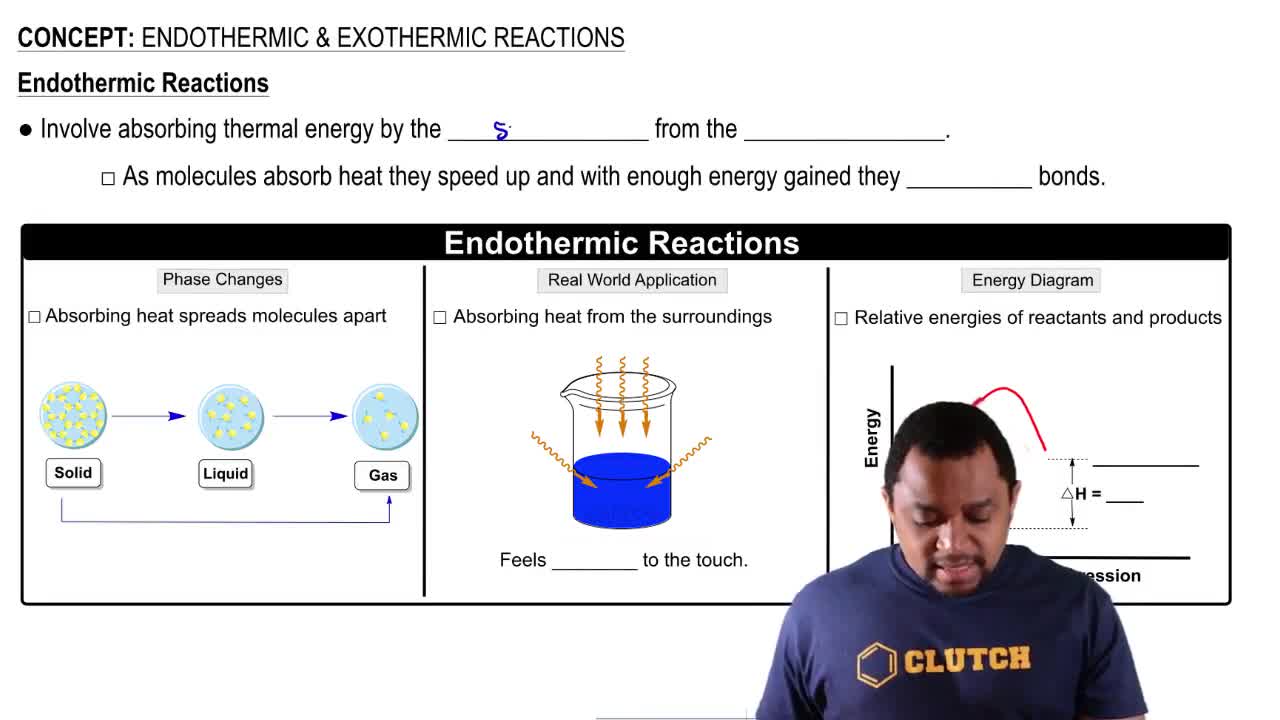Here are the essential concepts you must grasp in order to answer the question correctly.
Energy in Chemical Processes
In chemistry, energy is a crucial factor in determining the feasibility and rate of chemical reactions. Different processes, such as phase changes, bond breaking, and formation, require varying amounts of energy. Understanding the energy requirements helps predict which processes are more or less favorable under specific conditions.
Recommended video:
Endothermic vs. Exothermic Reactions
Reactions can be classified as endothermic or exothermic based on their energy exchange with the surroundings. Endothermic reactions absorb energy, often requiring a significant input to proceed, while exothermic reactions release energy. Recognizing these types is essential for evaluating which processes demand the most energy.
Recommended video:
Endothermic & Exothermic Reactions
Activation Energy
Activation energy is the minimum energy required for a chemical reaction to occur. It represents the energy barrier that must be overcome for reactants to transform into products. Processes with higher activation energies typically require larger energy inputs, making this concept vital for understanding which reactions are more energy-intensive.
Recommended video:




